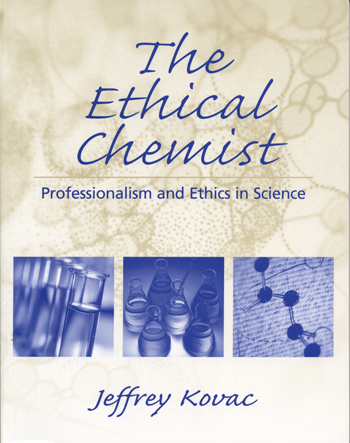As I was weighing in on aetosaurs and scientist on scientist nastiness, one of the people I was talking to raised the question of whether careerist theft and backstabbing of professional colleagues was especially bad in paleontology. (Meanwhile, a commenter expressed surprise that it wasn’t just biomedical researchers who felt driven to cheat.)
I don’t know. So I figured I’d put it to my readers:
Category Archives: Professional ethics
Way to represent your professional community, dude!
In response to my earlier post on the allegations of ethical lapses among a group of paleontologists studying aetosaurs, a reader sent me a message posted to a public mailing list of vertebrate paleontologists. The message gives a glimpse of an attitude toward others in one’s professional community that, frankly, I find appalling, so I’m going to give you my dissection of it.
Please note that the quoted passages below comprise the entire post to the mailing list, save for the poster’s (presumably real) name, which I’m excising because I’m not sure I want Google to link him in perpetuity with an attitude that he may grow out of.
Peer reviewer behaving badly (and why it matters).
Revere already flagged this story, but I’m going to try to move beyond the forehead slapping to some analysis of why a journal’s confidentiality rules might matter. (I’ll leave it to Bill, Bora, Jean-Claude, and their posse to explain how a thoroughgoing shift to “open science” might make such situations go away.)
The story, as reported in The Chronicle of Higher Education, is that a peer reviewer for the New England Journal of Medicine, reviewing a manuscript that reported negative findings about the safety of a diabetes drug, broke confidentiality rules and sent a copy of that soon-to-be-published manuscript to the drug’s manufacturer:
Paleontologists behaving badly.
A recent news item by Rex Dalton in Nature [1] caught my attention. From the title (“Fossil reptiles mired in controversy”) you might think that the aetosaurs were misbehaving. Rather, the issue at hand is whether senior scientists at the New Mexico Museum of Natural History and Science were taking advantage of an in-house publishing organ (the NMMNHS Bulletin) to beat other paleontologists to the punch in announcing research findings — and whether they did so with knowledge of the other researchers’ efforts and findings.
From the article:
Help build the science blogging ethics wiki.
One of the things that came out of the discussion of the ethics of blogging about science at the 2008 NC Science Blogging Conference was a clear sense that we don’t yet have general agreement about what kinds of ethics should guide science blogging — in part, because we haven’t come to an agreement about just what kind of activity science blogging is.
Tenure decisions.
In light of the ongoing flap about Iowa State University’s decision to deny tenure to Guillermo Gonzalez, I thought it might be worth looking at an actual university policy on tenure — the policy in place at my university — and considering the sorts of judgments required by policies like this. The take-home message is that tenure can’t be taken as a “sure thing” if only you produce a certain number of publications.
Rudy Baum responds to questions about C&E News.
In response to my open letter to the ACS, Rudy Baum, the Editor in Chief of Chemical & Engineering News, emailed me some information which I am posting here with his kind permission:
An open letter to the ACS.
Like Revere and the folks at The Scientist, I received the series of emails from “ACS insider” questioning the way the American Chemical Society is running its many publications — and in particular, how compensation of ACS executives (and close ties to the chemical industry) might influence editorial policies at ACS publications.
The ACS disputes the details of the anonymous emails, so I won’t have much to say about those. But as an ACS member (who is, at present, participating in an ACS regional meeting), I’d like to ask the Society for some clarity.
Freedom in the classroom.
Perhaps you’ve already seen the new(ish) AAUP report Freedom in the Classroom, or Michael Bérubé’s commentary on it at Inside Higher Ed yesterday. The report is such a clear statement of what a professor’s freedom in the classroom amounts to and, more importantly, why that freedom is essential if we are to accomplish the task of educating college students, that everyone who cares at all about higher education ought to read it.
Some of the highlights, with my commentary:
Book review: The Ethical Chemist.

People sometimes worry that throwing ethics coursework at scientists-in-training is not such a great strategy for training them to be ethical scientists. (I’ve explored worries of this sort myself.)
For one thing, at many schools the existing coursework may be a fairly broad “moral issues” course aimed at understanding what it means to be a good person rather than a good scientist.* Or the ethics course on the books may have more to do with meta-ethics (the examination of various theoretical frameworks grounding claims about what is good and what is bad) rather than practical ethics. And if the instructor for the course comes from a non-science discipline (like philosophy or religious studies) and is teaching from texts from that discipline, there’s a good chance that the student will ask herself, “What does any of this have to do with being an ethical scientist?”
Chemist Jeffrey Kovac’s book The Ethical Chemist: Professionalism and Ethics in Science is a text that, for those charged with teaching ethics to chemistry students, aims to sidestep these worries.
